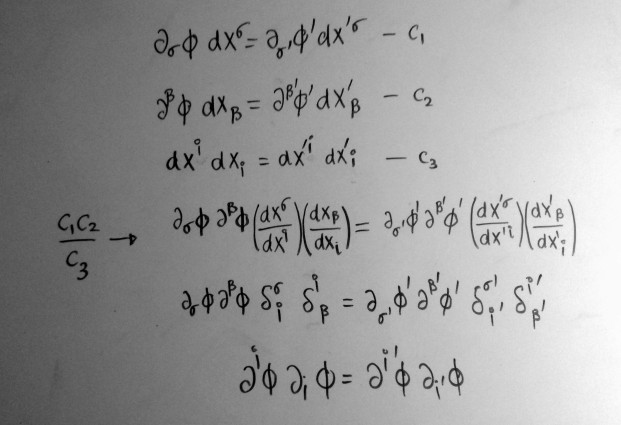When trying to convince myself that $\partial_{\mu} \phi \partial^{\mu} \phi $ is Lorentz Invariant, I stumbled upon this approach:
The last equation should read - $\partial_{i} \phi \partial^{i} \phi = \partial_{i^{'}} \phi^{'} \partial^{i^{'}} \phi^{'} $
Here since $C_1$, $C_2$ and $C_3$ are just scalars, it permits us do something like $\frac{C_1 C_2}{C_3}$. And this shows that $\partial_{\mu} \phi \partial^{\mu} \phi $ is Lorentz Invariant.
Does this seem logical to do this and prove it this way? I understand that there exist other better methods to show the same, I am just wondering if this method is consistent.
Thanks!
** dx$dx$ and dx'$dx'$ are related by the Lorentz Transform.

